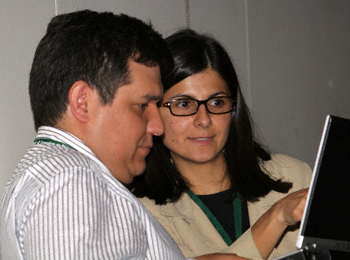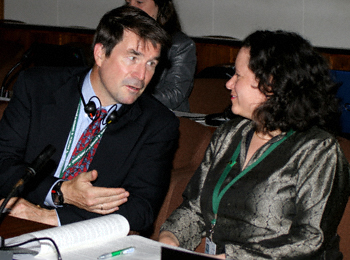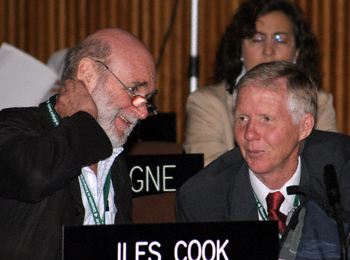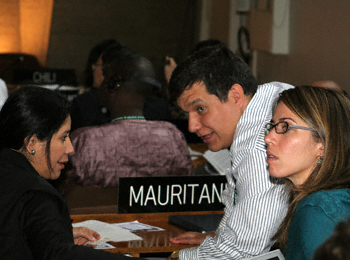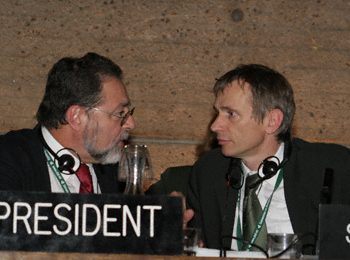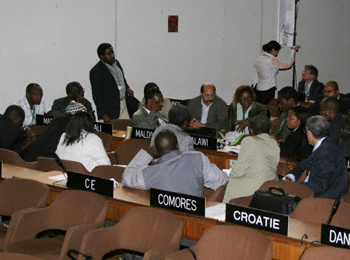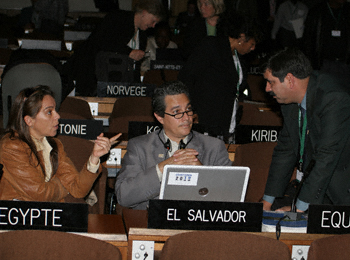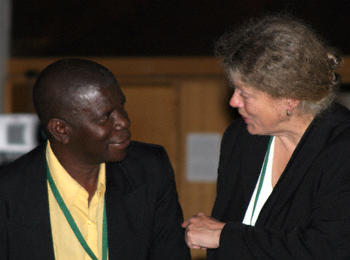PLENARY |
Options for Streamlining Guidance to the GEF |
| |
|
|
|
|
| |
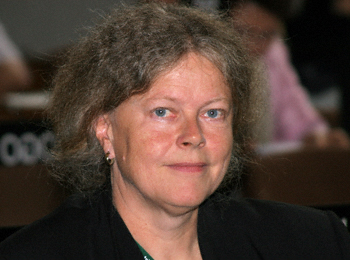 |
|
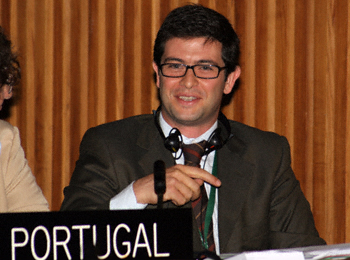 |
|
| |
Tone Solhaug, Norway, questioned the mandate of the Bureau in developing a four-year framework for programme priorities. |
|
Marco Rebelo, Portugal, on behalf of the EU, encouraged the Executive Secretary to further the dialogue with the GEF CEO/Chairperson. |
|
| |
|
|
|
|
|
|
| |
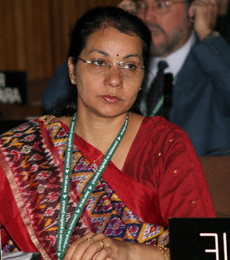 |
|
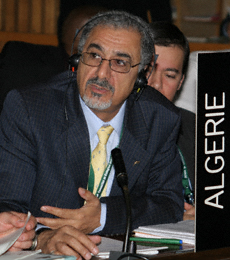 |
|
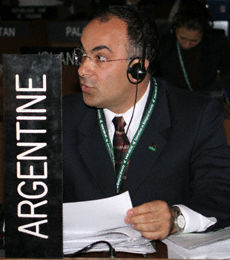 |
|
| |
Sujata Arora, India, underscored the importance of access and benefit sharing as a priority for the GEF. |
|
Djamel Echirk, Algeria, commended efforts to shorten the GEF project cycle. |
|
José Luis Sutera, Argentina, questioned the use of the terminology “sustainable financing” urging for “funding schemes” to be used instead. |
|
| |
|
|
|
|
| |
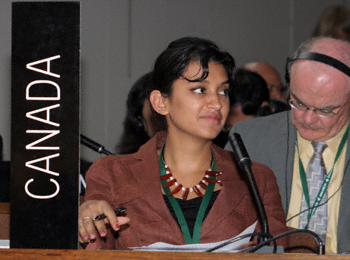 |
|
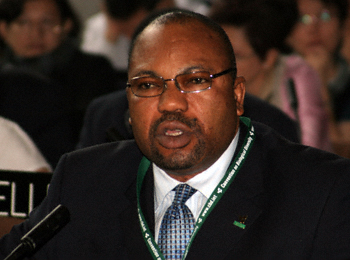 |
|
| |
Erum Hasan, Canada, welcomed discussions on how the COP could best provide advice. |
|
Ositadinma Anaedu, Nigeria, proposed exploring complementarity between the GEF and other financial mechanisms. |
|
| |
|
|
|
|
| |
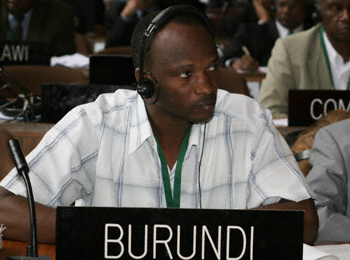 |
|
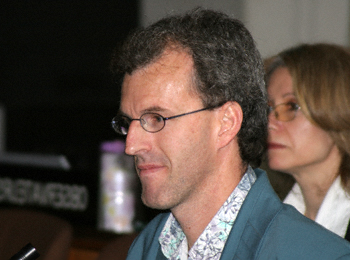 |
|
| |
Oscar Ndayiziga, Burundi. |
|
Maurizio Farhan Ferrari, the Forest Peoples Programme. |
|
|
Operations of the Convention: Retirement of Decisions |
| |
|
|
|
|
| |
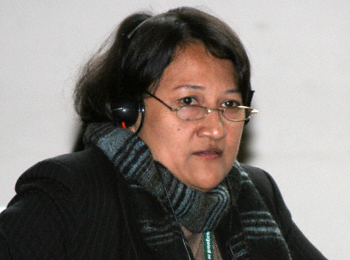 |
|
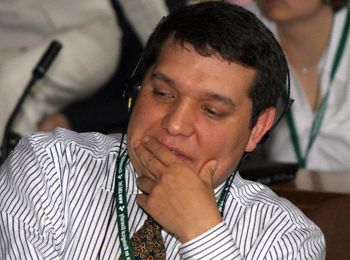 |
|
| |
Patama Domrongphol, Thailand, supported an eight-year period for updating decisions. |
|
Hesiquio Benitez, Mexico, suggested following the CITES model in identifying decisions that are still relevant or that may need amendment. |
|
| |
|
|
|
|
| |
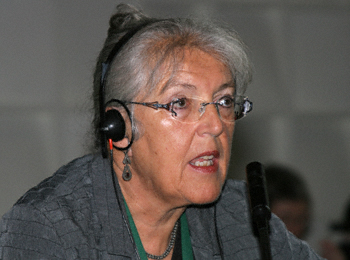 |
|
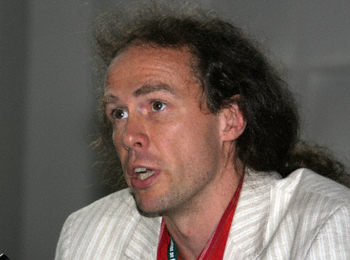 |
|
| |
Christine Von Weizsäcker, ECOROPA, cautioned against the retirement of decisions that might contain principles central to the future work of the CBD. |
|
Martin Kaiser, Greenpeace, called for CBD decisions to be adopted by qualified majority. |
|
|
Operations of the Convention: Admission of Observers |
| |
|
|
|
|
|
|
| |
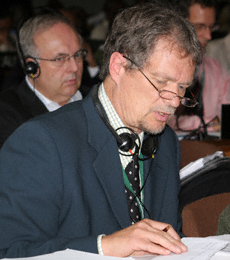 |
|
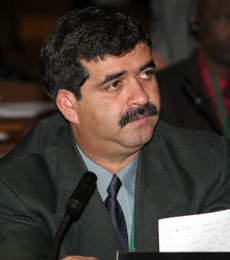 |
|
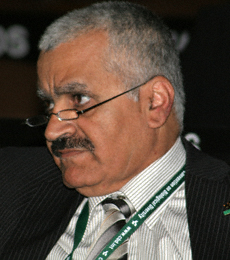 |
|
| |
Ole Hendrickson, Canada, called for a flexible process to ensure the widest possible participation. |
|
Antonio Matamoros, Ecuador, endorsed the participation of all stakeholders. |
|
Ghanim Abdulla Mohammed, Qatar, called for clearly defining private sector participation. |
|
|
Implementation of Goals 2 and 3 of the Strategic Plan |
| |
|
|
|
|
|
|
| |
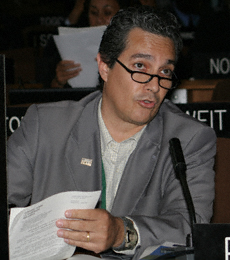 |
|
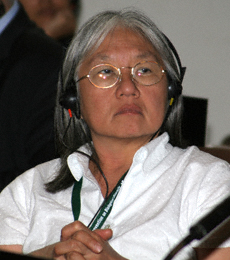 |
|
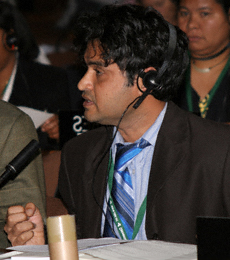 |
|
| |
Jorge Ernesto Quezada Diaz, El Salvador, said NBSAPs are essential for the implementation of the Convention. |
|
Lena Chan, Singapore. |
|
Ahmed Saleem, Maldives, requested “supporting” rather than “encouraging” parties to establish or strengthen national CHMs. |
|
| |
|
|
|
|
| |
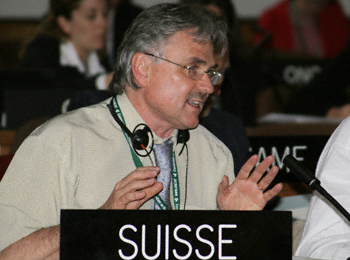 |
|
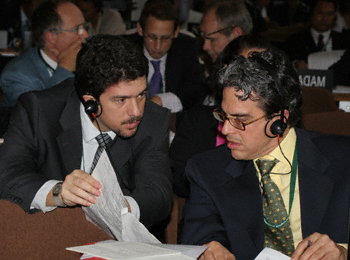 |
|
| |
Robert Lamb, Switzerland, requested references to both the access to genetic resources as well as benefit-sharing in paragraphs on NBSAPs. |
|
Gustavo Pacheco and Fernando Coimbra, Brazil, asked that inadequate financial, human and technical capacity be noted as the most widespread constraint to implementation. |
|
| |
|
|
|
|
|
|
| |
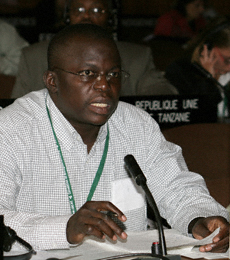 |
|
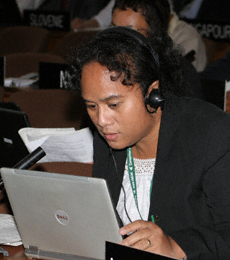 |
|
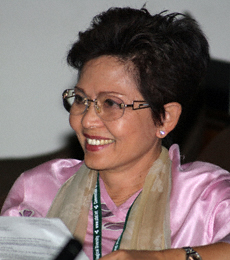 |
|
| |
Francis Ogwal, Uganda, called for promoting and supporting local action for implementation. |
|
Nenenteiti Teariki-Ruata, Kiribati, proposed improving the participation of indigenous peoples and local communities in NBSAPs. |
|
Chaweewan Hutacharern, Thailand, suggested specifying that NBSAPs should effectively mainstream gender issues. |
|
| |
|
|
|
|
| |
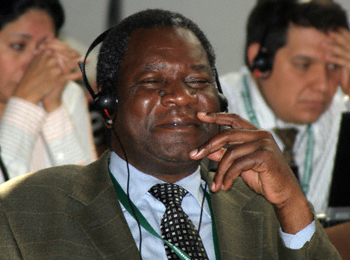 |
|
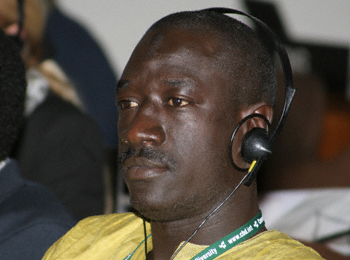 |
|
| |
James Seyani, Malawi. |
|
Mandiaye Ndiaye, Senegal. |
|
| |
|
|
|
|
|
|
| |
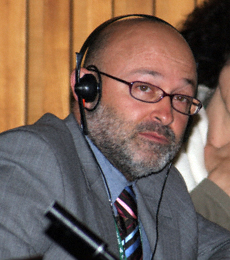 |
|
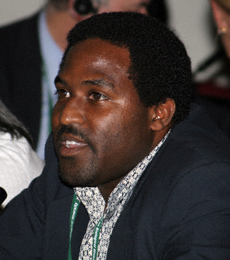 |
|
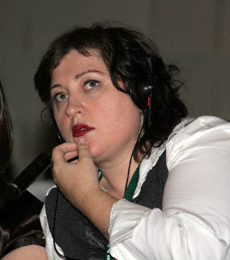 |
|
| |
Pedro Ivo Arriegas, Portugal. |
|
Selby Remy, Seychelles. |
|
Felicity Buchanan, New Zealand. |
|
|
Snapshots |
|
|


.gif)































